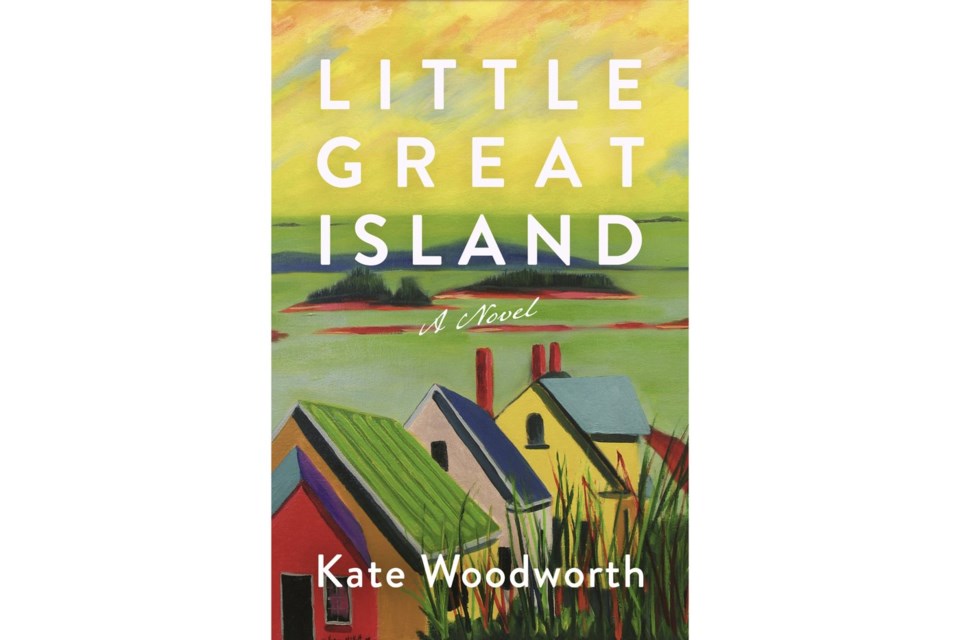Mari McGavin is on the run from a powerful religious cult and her controlling husband, fleeing with her young son back to the tiny island in Maine where she grew up.
On Little Great Island, she crosses paths with an old friend from her childhood, Harry Richardson, who is fleeing his own demons, in his case grief and painful memories after his wife’s death. Harry is so bereft he can barely function as he returns to sell the home where his family spent summers when he was kid.
In her novel “Little Great Island,” author Kate Woodworth explores the relationship between the two as they navigate pain and loss, as well as their connections to an island being reshaped by global warming.
Harry reluctantly allows Mari, who lived for years in a religious farming community in South Carolina, to plant a vegetable garden on his family’s property while he clears out its contents and readies it for sale. They grow closer as Harry helps Mari and her 6-year-old son, Levi, with gardening chores and he slowly starts absorbing his loss.
Distinguished retired diplomat Tom Estabrook, who knew Mari and Harry as children, is also a key character in the book released this month by Sybilline Press.
Estabook, who spent many summers on Little Great Island, worries over its future as the ocean around it heats up, lobsters and clams die from shell disease and monarch butterflies on land largely disappear. Mari’s father bemoans that his daily lobster catch is now just around 60, down from an average of 400 or 500.
In Woodworth’s skillful hands, Little Great Island itself emerges as a leading character, with vibrant mentions of the natural world that range from an osprey’s hunting sound to lobster mating habits.
As Little Great Island and its way of life are increasingly threatened, year-round and summer residents are struggling over the future.
Some permanent residents are considering whether to move to the mainland and get a regular job in an office or shop. Others can’t decide if a developer should be allowed to build an executive retreat center that could harm the environment and forever change the island’s character.
Mari believes organic farming could provide a sustainable way to save the island and its character. But in the end, as tension builds over a decisive vote, it’s up to the permanent islanders to decide their path forward.
___
AP book reviews: https://apnews.com/hub/book-reviews
Anita Snow, The Associated Press



